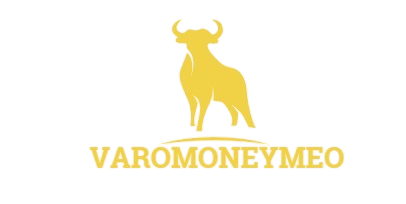
Industry across the nation and globally goes via a fourth industrial revolution, and accounting and finance are no different. With HMRC's Making Tax Digital reforms and a continued concentrate on becoming among the world's most digitally advanced administrations, digital transformation is well and truly in motion in the united kingdom finance sector. Consequently, there's increasing pressure on business people to stay ahead of the curve as accounting moves towards a digital-first approach.
There is really a misconception that accounting as a sector will face death by digital, but in reality, technology is an opportunity, not a threat. Software is able to leverage technology to create accounting processes simpler for business owners and finance professionals; for instance, cloud-based data management, interoperable systems and improved analytics.
What technology can be used in accounting?
Cloud computing
One of the very most noticeable shifts in accounting is really a move towards cloud computing technology, that is where information is stored and accessed online, instead of on-premise. This gives a free flow of information, regardless of the accessing device, and means that employees inside the business can collaborate and exchange information more easily. As hybrid working is now taking a much more prevalent place in business, cloud computing offers real benefits to colleagues who work remotely as they can access the software from wherever they are working.
Cloud computing is well established in accounting and it is embedded right into a selection of accounting software. It enables finance jobs to become easily undertaken by more than one person and provides a safe storage place for those data that won't be lost by an accidental hard disk wipe. Interoperable systems allow information to be shared to ensure that data does not need to be constantly rekeyed, which is time intensive and may lead to mistakes that later need unpicking, and have the additional advantage of giving business people full sight of the accounts in collaboration with any relevant colleagues or external accountants.
Blockchain and automatic accounting technology
Technologies that are still emerging within finance are blockchain and automatic accounting technology. Blockchain is an encrypted data logbook that enables companies to make use of common data retention infrastructure, meaning both sides of every transaction, buyer and seller, are recorded in a shared ledger to minimise inefficient and time-consuming procedures that may lead to discrepancies. Automated accounting will make life easier for business people and accountants, with a shorter period being spent on manual entry and the space for human error being minimised. Consequently, time is freed up to spend on other areas of the company, which could support overall profitability.
Artificial intelligence and machine learning
Recent years have seen a rapid acceleration within the pace of disruptive technologies such as artificial intelligence and machine learning in Finance because of improved software and hardware. The finance sector has witnessed a steep increase in the utilization installments of machine learning applications to succeed better outcomes for both consumers and businesses.
AI can conduct rudimentary tasks and ML can pick on errors that will well be complicated to solve. Using AI and ML together with one another will reduce time allocated to arduous, repetitive jobs, for example payroll.
Optical character recognition technology
Optical character recognition technology is increasingly being embedded into accounting software. It allows for handwritten and scan printed documents to become converted into machine-readable text that may be copied or edited as necessary. Integration with accounting software allows business owners and accountants to reduce on unnecessary paper clutter and makes documents quicker to access.
What would be the benefits of finance digital transformation?
Successfully implementing technology into business accounting processes brings a wealth of benefits which ultimately result in firms saving time and money. Operations inside the business will become more streamlined so that employees and owners can focus their time on developing and growing the company. This will lead to increased sales, better relationships with customers and suppliers, and improved, data-informed decision making.
With mandatory Making Tax Digital for all VAT registered firms entering action next year, business people who fail to acquaint themselves with digital record-keeping ahead of time could find themselves facing penalty fines. The brand new legislation shows a clear shift on a nationwide scale towards digital processes. Business people that don't embrace it may find they are left behind as competitors become more digital and efficient.
Digital transformation can improve processes across the whole business. Skeptical business owners can test the waters with accounting technology and analyse the results to see how it is impacting the company. This may be the initial step on a wide-scale digital transformation journey that demonstrates the advantages of technology and opens minds to implementation through the business.
Choosing the right software
The finance technology sector has been growing for quite some time, there is a big quantity of accounting software possibilities on the market. Business leaders should use all departments of the business to define the specifications necessary for the company's unique needs. This can ensure a streamlined process post implementation and businesses should demo numerous offerings to decipher the characteristics that best focus on the organization.
Some important elements that business people will want in their software are fixed costs and a strong and reliable support system.
Business owners are all too often stung by hidden costs in their software. Some providers will offer you cheap prices, only to recoup the costs in long, expensive implementations. Before committing to a provider, make sure you possess a full and transparent quote to prevent a large, surprise bill later on.
Software can't always be perfect and on occasions, things do go wrong. Utilizing a provider with reliable customer support support and expert accountants on hand to help will mean any issues could be ironed out quickly, without too much disruption. A real, human touch out of your software provider will go a long way to keep everything running efficiently as the business adopts digital transformation.


